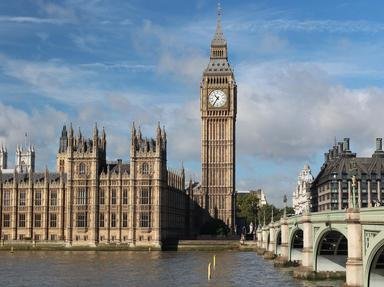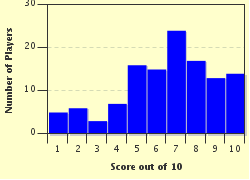Quiz Answer Key and Fun Facts
1. In what year was Tony Blair first elected PM?
2. Harold Wilson's premiership had its 'up and downs' during the 1960s and early 1970s. During his terms of premiership many new policies were introduced. However, what did Wilson refuse to do?
3. Margaret Thatcher certainly made an impression on the UK, and not all her decisions were universally popular. Which of the following caused riots?
4. It is said that the Labour government under Clement Attlee, after World War II, was the greatest in terms of social reform with the introduction of the welfare state. The NHS came into effect in 1948, who was the creator of this great institution?
5. Between 1910 and 2010, four prime ministers have inherited the post from a predecessor and not been appointed following a general election victory or won a general election. Neville Chamberlain, Alec Douglas-Home and James Callaghan are three of them. Who is the fourth?
6. Who was the longest serving PM between 1910 and 2010?
7. Edward Heath, an accomplished organist and sailor, was a Conservative PM from 1970 - 1974. What major change to British society did he oversee?
8. David Lloyd George was the last Liberal to be PM. Towards the end of his term, he attempted to buy favours through a 'cash for honours' scheme. Which latter day PM was also involved in such a scandal?
9. The general election in May 2010 led to the formation of a coalition/national between the Conservatives and Liberal Democrats. When was the last 'peace time' coalition/national government formed in British politics?
10. David Cameron became Prime Minister in May 2010, following the forming of a coalition with the Liberal Democrats. Who did he replace as leader of the Conservative Party?
Source: Author
Exiledbantam
This quiz was reviewed by FunTrivia editor
trident before going online.
Any errors found in FunTrivia content are routinely corrected through our feedback system.

